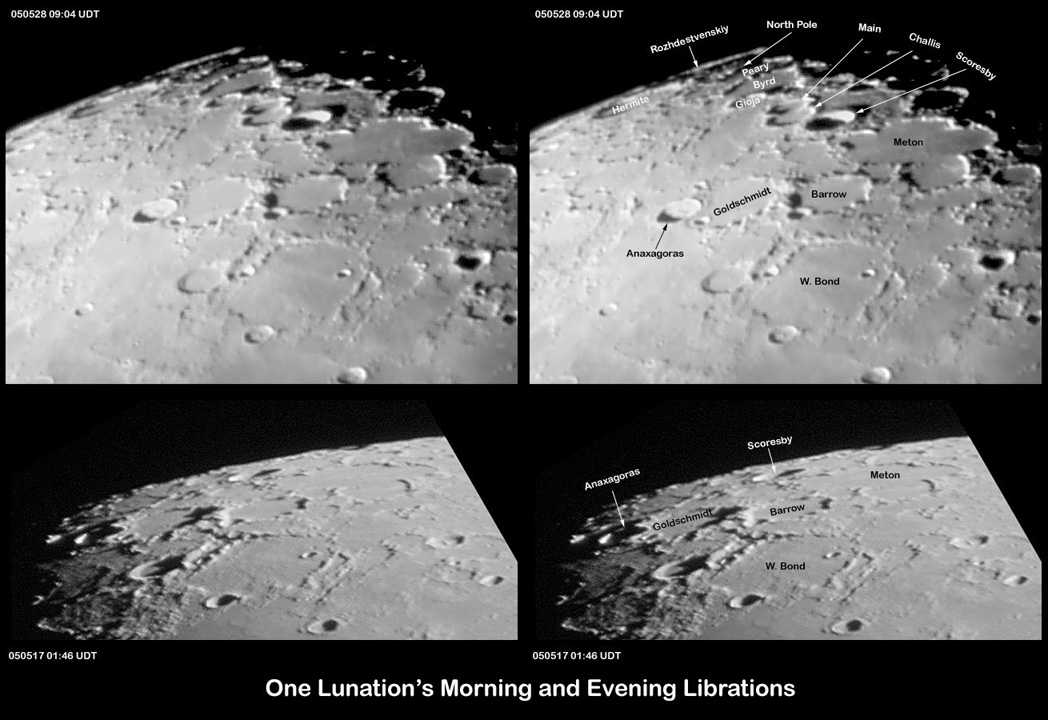 image by Howard Eskildsen
image by Howard Eskildsen
Rozhdestevensky? Its an unfamiliar name from the farside of the Moon, just over the north pole. But as Howard’s upper image shows at least the rim of the crater can be glimpsed from time to time. Libration – the tilting of the Moon’s north or south polar areas toward Earth, and the slight swinging of the east and west limbs into view – is most readily detected by watching how close Mare Crisium is to the east limb. Libration in latitude is less easy to notice because there is not such a conspicuous marker crater near either pole. A telescopic crater that I watch is Scoresby, a crisp 56 km wide crater at 78 degrees north. On Howard’s bottom image Scoresby is scrunched near the limb and is seen almost in profile. Ten nights later (above) a favorable libration tilted the Moon so that seeing beyond the north pole was possible. When I observe, after I surf the terminator I skim the limb to check out librations, being delighted when a rarely seen edge is visible. Howard points out that during the next few months the moon’s southeastern (Mare Australe) area and the northwestern limb (Xenophanes) are favorably librated for observing. Check them out.
Technical Details:
Top photo was taken with a Meade 6″ f/8 refractor with 2X Barlow and Neximage and stacked with Registax. The bottom was taken through Jose Olivarez’s 10″, f/15 refractor with a Nikon Coolpix 4300. Just can’t beat extra inches of glass diameter for image quality.
Related Links:
Rükl chart 4
SUPPORT LPOD - VISIT A SPONSOR (CLICK AN AD BELOW)!
COMMENTS?
Register, and click on the Discussion tab at the top of the page.



